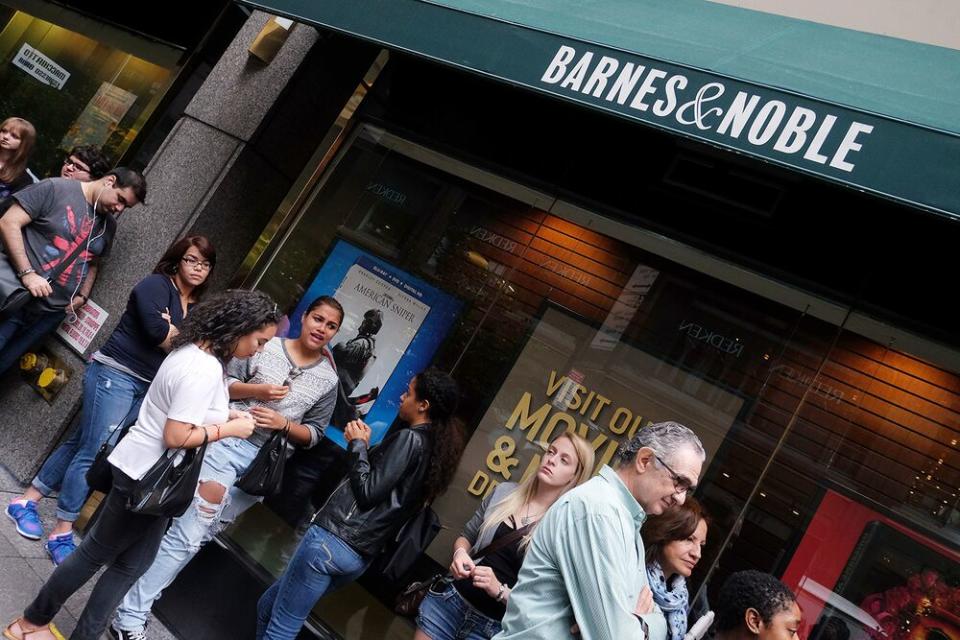Barnes & Noble Suspends 'Diverse Editions' of Classics After Critics Slam Them as 'Blackface'
The book publishing industry has once again been accused of being culturally insensitive and alienating writers of color.
On the heels of the American Dirt controversy in January, the industry is facing more backlash after Penguin Random House partnered with Barnes & Noble to release new editions of literary classics like Peter Pan and Romeo and Juliet, with covers featuring black and brown characters that were designed by artists of “different ethnicities and backgrounds.”
The response has been so angry and immediate — some critics ask why organizers didn’t just highlight authors of color, while others see the covers as a form of literary “blackface” — that on Wednesday the national bookseller released a statement explaining their decision to “suspend” the initiative. The news was announced on the same day the editions were scheduled to be released at the flagship store in New York City.
“We acknowledge the voices who have expressed concerns about the Diverse Editions project at our Barnes & Noble Fifth Avenue store and have decided to suspend the initiative,” the bookstore said in a statement on Twitter. “The covers are not a substitute for black voices or writers of color, whose work and voices deserve to be heard.”
“The booksellers who championed this initiative did so convinced it would help drive engagement with these classic titles,” continued the chain. “It was a project inspired by our work with schools and was created in part to raise awareness and discussion during Black History Month, in which Barnes & Noble stores nationally will continue to highlight a wide selection of books to celebrate black history and great literature from writers of color.”
Penguin Random House did not immediately respond to PEOPLE’s request for comment, but CNN reported the publisher promised to “donate up to $10,000 to the Hurston Wright Foundation, which works to develop, discover and server black authors” and “give a dollar every time people tweet the hashtag #BlackStoriesHavePower.”
The Diverse Editions event at our @BNFifthAvenue location originally scheduled for this evening has been cancelled. Please see our statement: pic.twitter.com/jGquff9MyM
— Barnes & Noble (@BNBuzz) February 5, 2020
Readers and authors alike have been critical of the initiative.
Author Adriana Herrera called the books “the classics in blackface,” according to the New York Times. And Chicano writer David Bowles called the editions a “disgusting, racist, black-face display,” later visiting the store in protest. (Historically, blackface stems from minstrel shows that began in the 1800s in which white performers darkened their faces and stereotyped and codified blackness, according to the National Museum of African American History & Culture. Modern-day references are widely considered racist, offensive and unacceptable.)
I'm going to go by at some point during the day, before my flight, and hopefully stream live video of myself in front of this disgusting, racist, black-face display to raise consciousness about how TOTALLY OUT OF TOUCH the entire fucking industry has become.
2/— David Bowles (Mācuīl Ehēcatl) (@DavidOBowles) February 5, 2020
“Sooooo…..the idea was to put blackface on to white written books…..forblackhistorymonth??!!??” wrote one Twitter user.
Sooooo.....the idea was to put blackface on to white written books.....forblackhistorymonth??!!??
Okay..😒🙄😒🤦🏾♂️🤦🏾♂️🤦🏾♂️🤦🏾♂️
"Barnes & Noble store facing backlash over its ‘Diverse Editions’ of classic novels" https://t.co/BPyLo6cRtg— Pasch....it sounds like cash (@Tao_Pasch) February 5, 2020
The 12 new editions were created after a brainstorming session between chief creative officer Chris Beresford-Hill and chief diversity officer Doug Melville of TBWA/Chiat/Day New York, the agency that served as the third partner in the initiative, according to Fast Company. The two were inspired by the controversial decision to cast a black actress for the role of Hermione in the play Harry Potter in the Cursed Child, even though the character was portrayed by a white actress in the original Harry Potter films. (In the books, author J.K. Rowling never identifies Hermione’s race.)
“When you’re a kid in school, they always tell you that the wonderful thing about reading is what’s on the page is fixed, but you can imagine it any way you want,” Beresford-Hill told the outlet. “And we started to think, well, if J.K. Rowling can say she never identified race, and it’s open to any interpretation you choose, then a lot of books have covers with white protagonists just because of some sh—y marketing back in the day.”

To select the covers, 100 classics reportedly went through an artificial intelligence system to determine if the authors ever indicated the lead character’s race — a process that also has critics reeling. The hope was to help more readers connect to classics by making them more inclusive, according to Fast Company.
Many writers were not pleased by the results.
“They could have Googled, chosen a dozen books by actual Black authors that are classics & sent those out with fresh covers & a big event,” tweeted author Mikki Kendall, who was also cited by the Times. “Add in bringing in contemporary Black authors to discuss these works & the whole thing is a win. They didn’t do the easy or logical thing.”
They could have Googled, chosen a dozen books by actual Black authors that are classics & sent those out with fresh covers & a big event. Add in bringing in contemporary Black authors to discuss these works & the whole thing is a win. They didn't do the easy or logical thing.
— ❄Mikki Kendall❄ (@Karnythia) February 5, 2020
Some of her author suggestions?
“Phillis Wheatley. W.E.B Dubois. Zora Neale Hurston. James Baldwin. Langston Hughes. Gwendolyn Brooks,” Kendall listed in a separate tweet.

